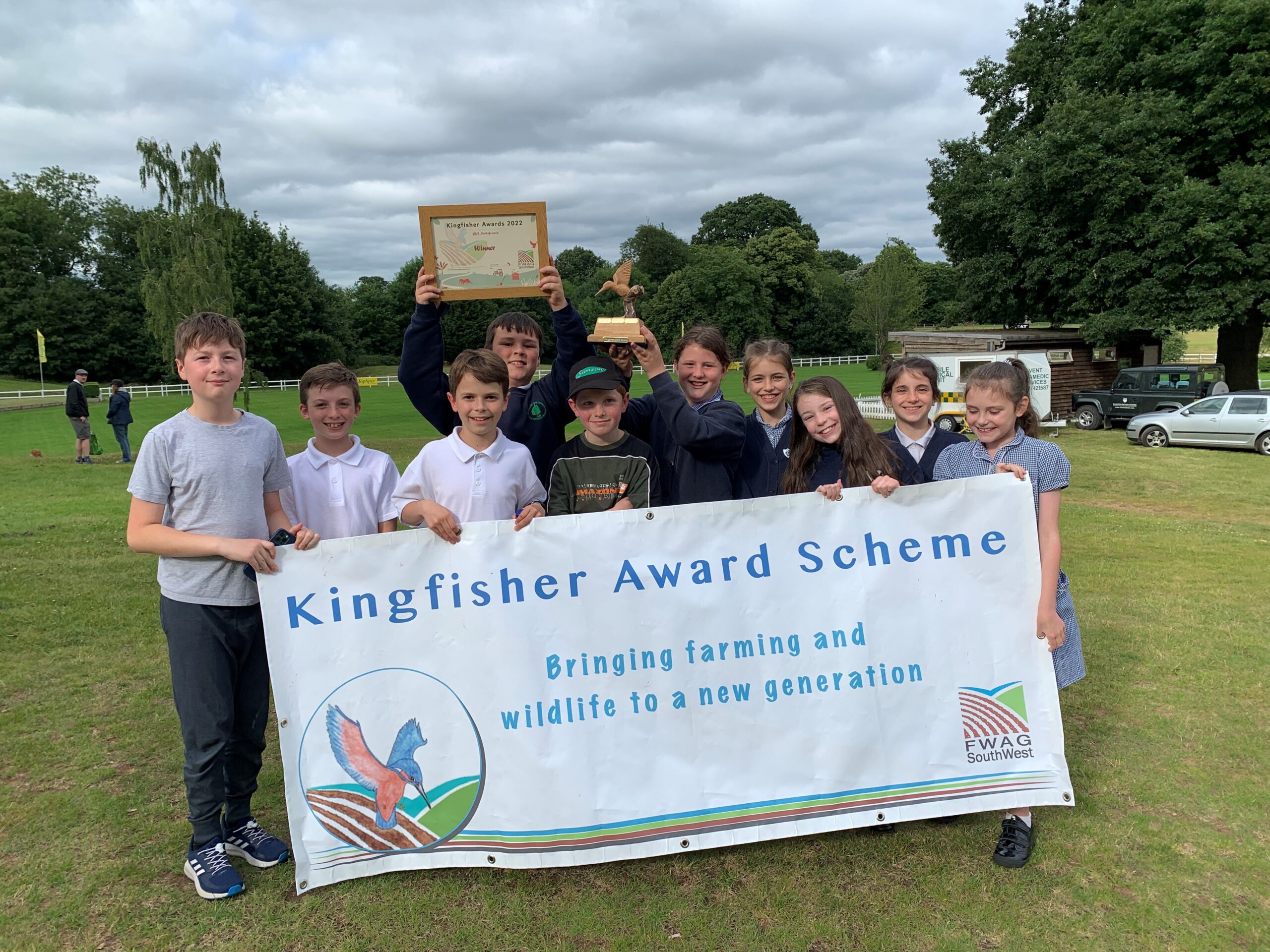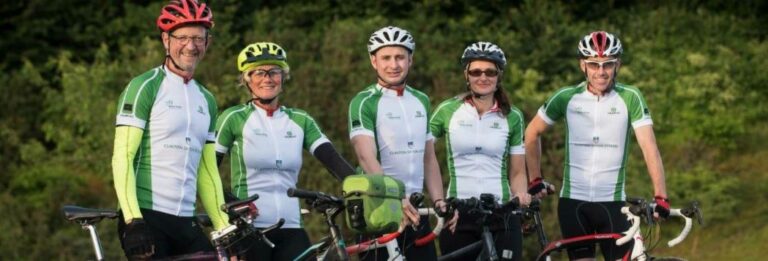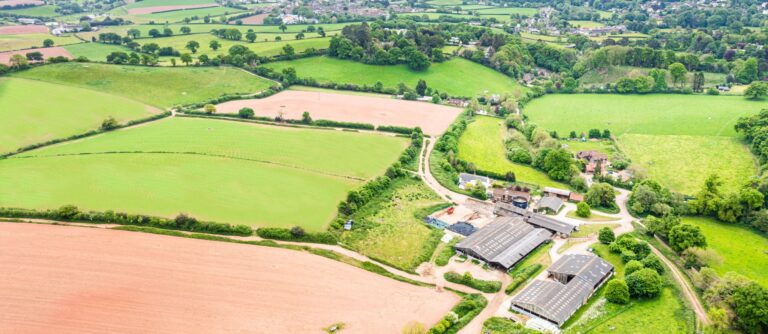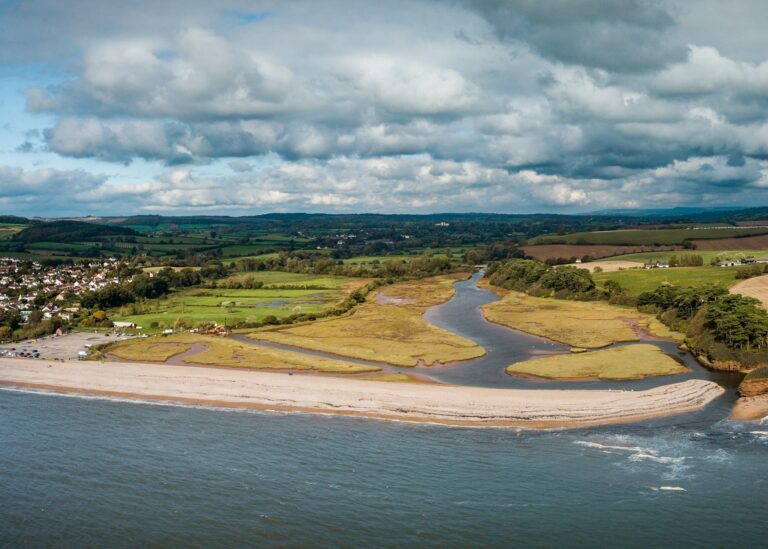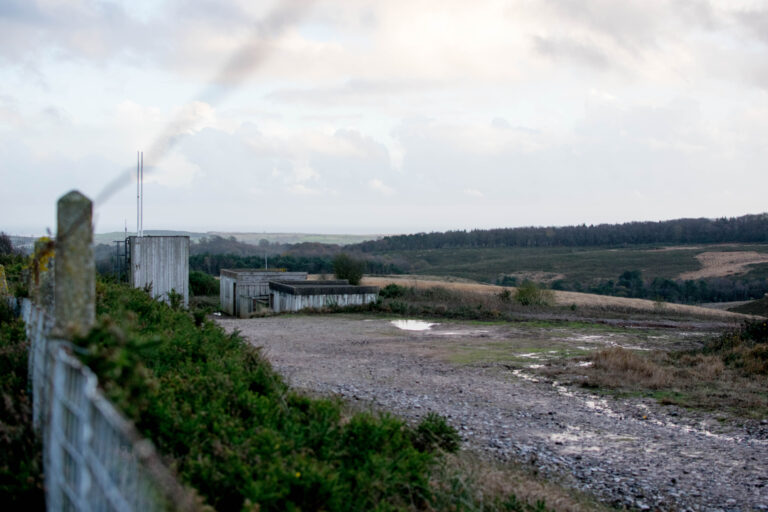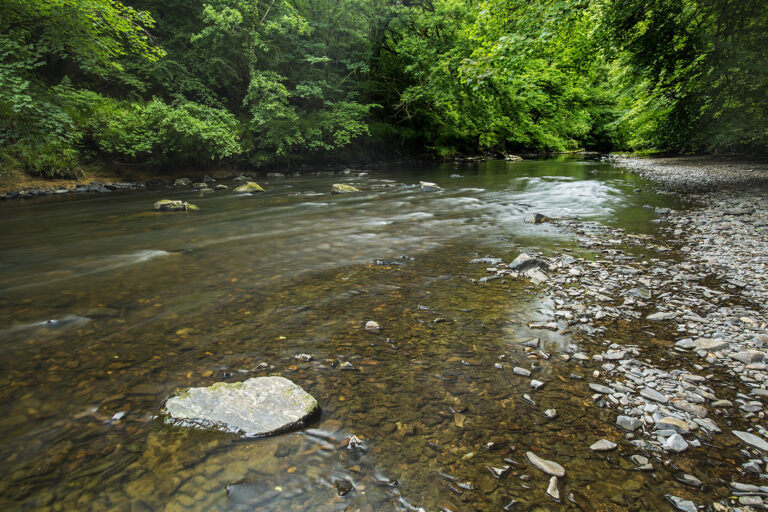Devon schoolchildren wow the judges at Kingfisher Award Scheme presentation event
Youngsters who took part in this year’s Kingfisher Award Scheme have been showing off the results of their creativity at a prize giving event at Bicton Arena.
They took along project work, inspired by a visit to an East Devon organic farm, to share with a team of judges and guests at the special presentation.
The Kingfisher scheme is an educational initiative which gets hundreds of children onto local farms to learn more about the natural world and make the connection between farming, food and wildlife.
The presentation evening marked the end of this year’s scheme, with schools from across the region able to enjoy the event in person for the first time since 2019, now Covid restrictions have been lifted.
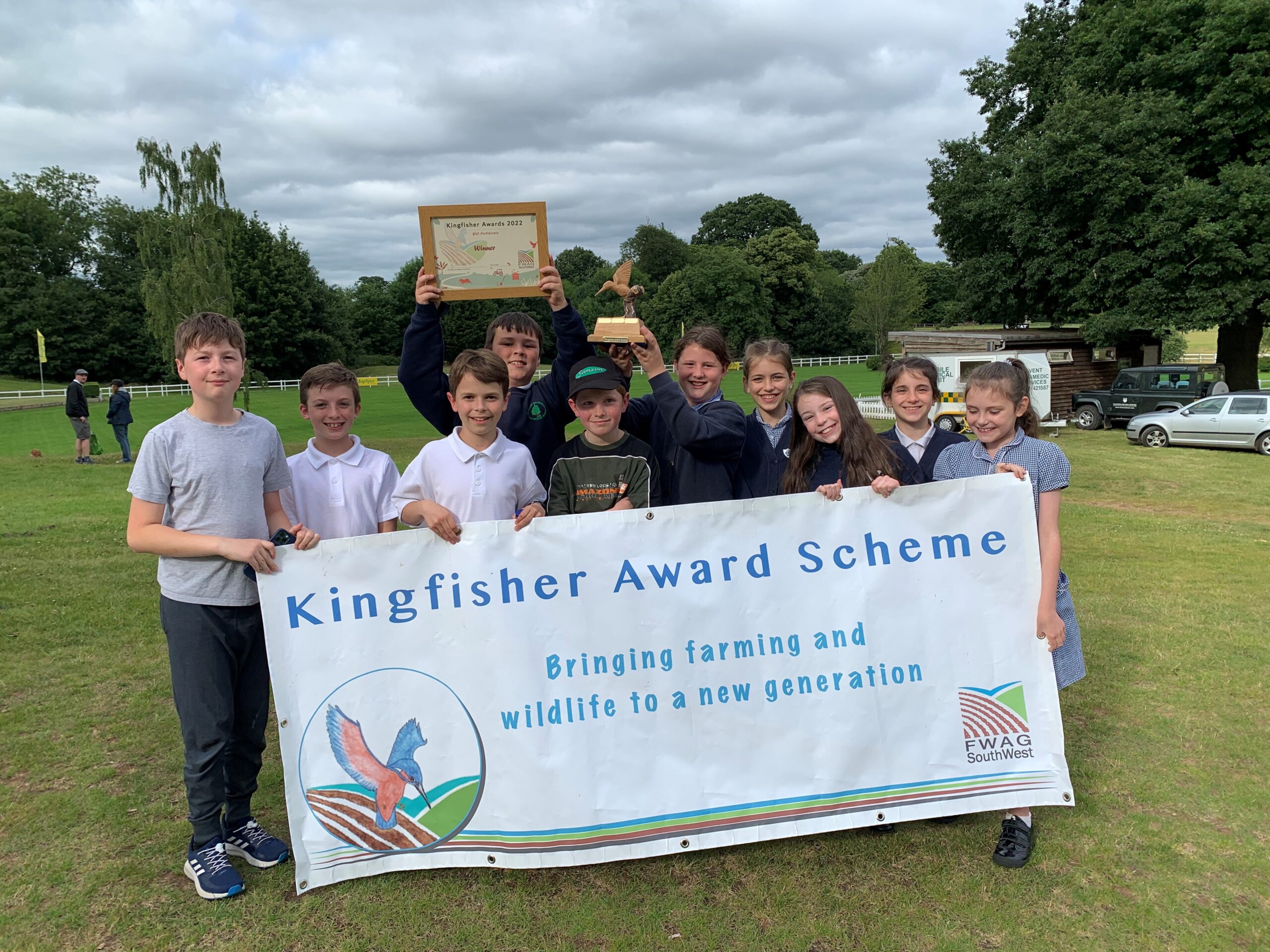
Top prize and the coveted Kingfisher Trophy went to Woodbury Salterton Church of England Primary School, with Littleham Church of England Primary School in Exmouth taking the runner-up award.
There was also a highly commended category, won by pupils from Mill Water Special School, whose prize was collected by 12-year old Amy Howden. All the schools involved received book prizes.
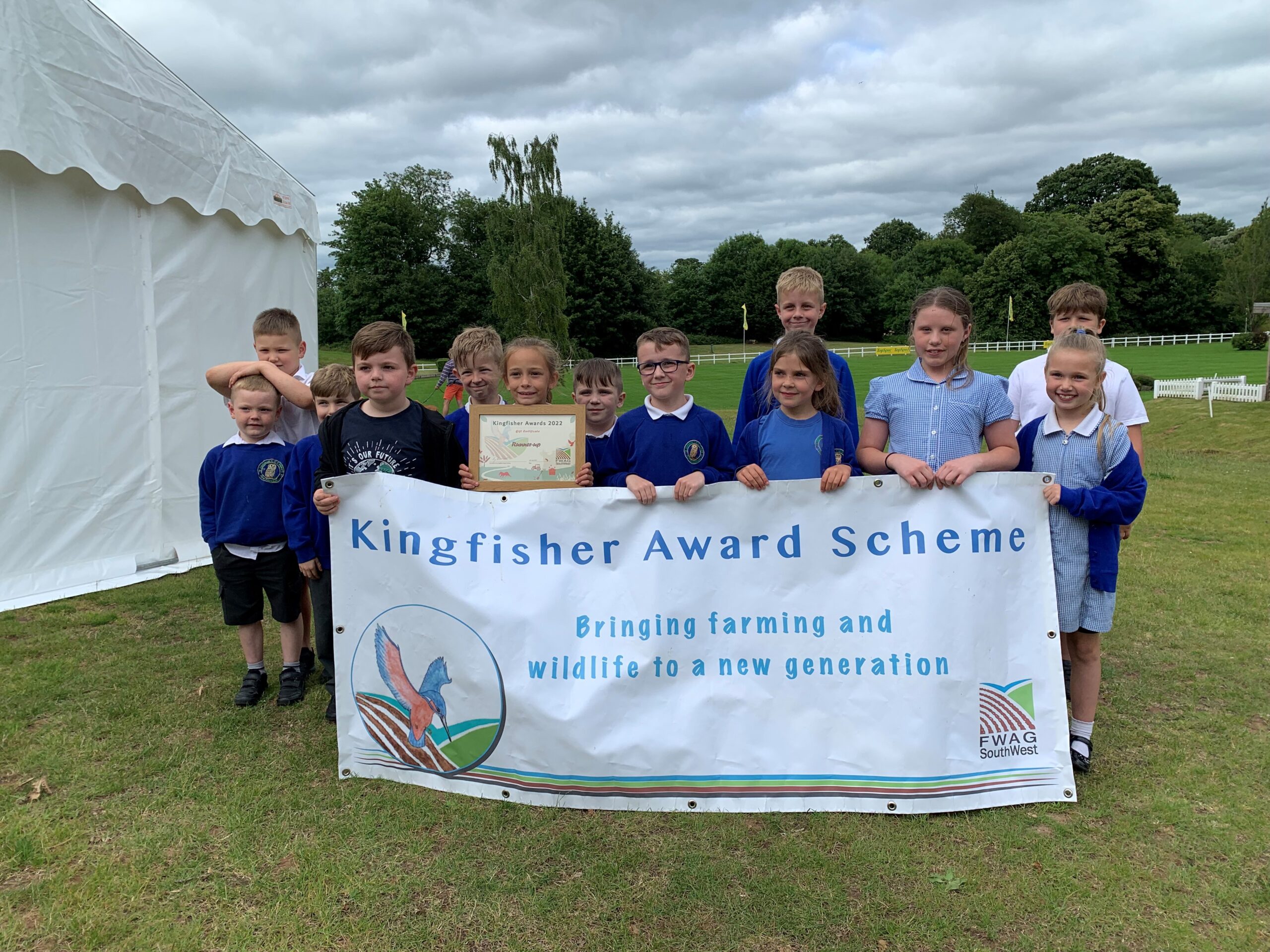
Once again, Clinton Devon Estates organised the Devon Kingfisher project, hosting 12 schools – the most in the event’s history. Hundreds of pupils descended on Stantyway Farm on the Jurassic Coast near Otterton, where they were welcomed by the Estate’s tenant farmers Sam and Nell Walker.
During farm field trips in May, pupils joined in a range of activities at Sam and Nell’s arable and beef farm. They learned about different crops, used British sourced ingredients to make flapjacks and identified farmland birds, including rare Cirl buntings, using binoculars.
The judges who had the tough assignment of picking the winning projects were John and Audrey Whetman, farmers and long-time supporters of the Kingfisher Award and Cllr Jess Bailey, Devon County Councillor for the Otter Valley.
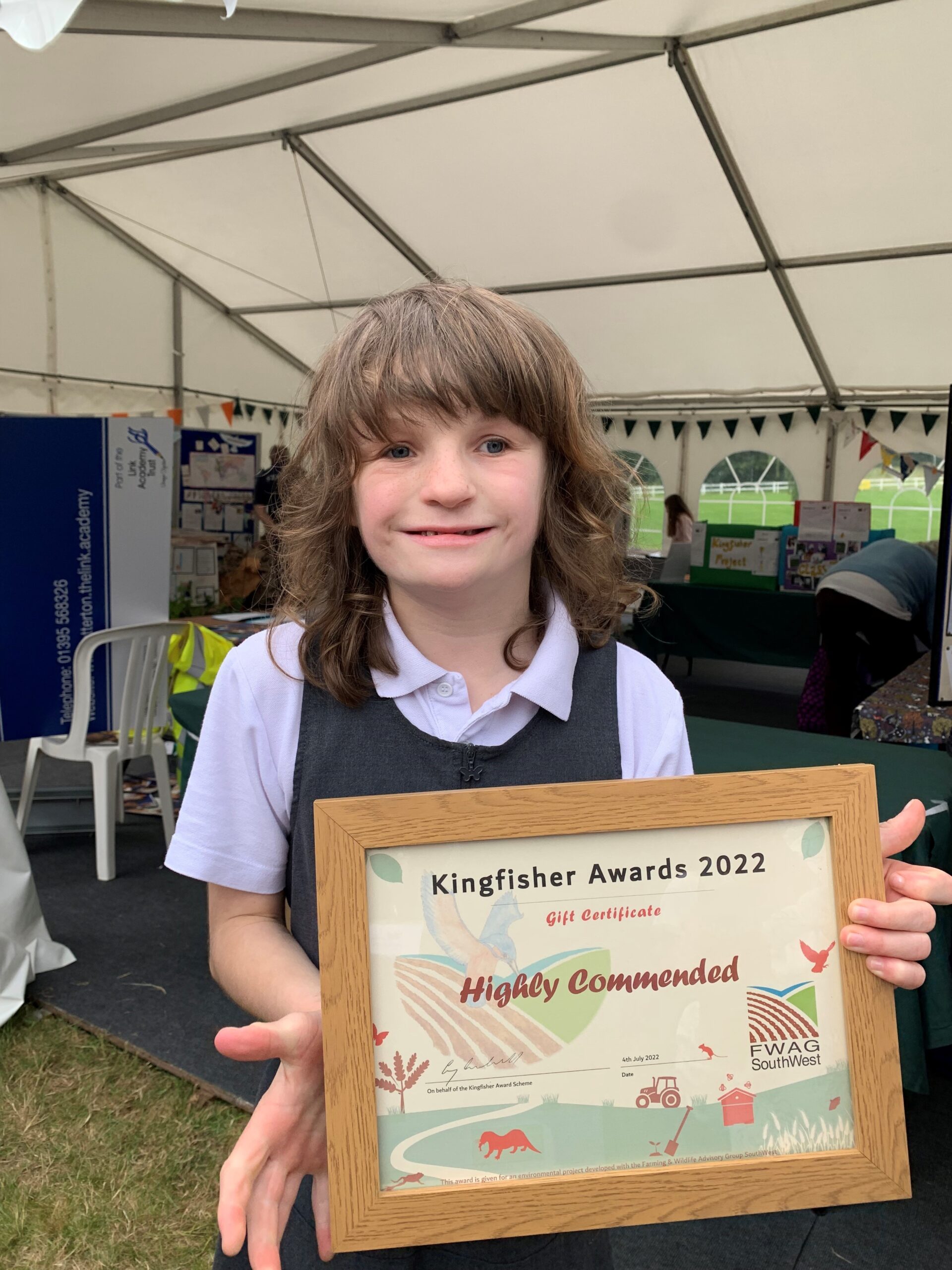
Kate Ponting, Clinton Devon Estates’ Countryside Learning Officer, said: “The project work gets better and better every year. The judges really had their work cut out but took time to talk to the pupils, as well as carefully assessing all the work displayed.
“Having to choose between all the magnificent entries is always so difficult and everyone who had been involved with the scheme before said that this year’s standard was really exceptional, so well done to all.
“Next year, we hope to move the scheme to a different area of Devon, find a new farm and reach out to a new set of schools, who are keen to connect classes to how farmers produce food and also support the natural environment.”
During farm field trips in May, pupils joined in a range of activities at the Sam and Nell’s arable and beef farm. They learned about different crops, used British sourced ingredients to make flapjacks and identified farmland birds, including rare Cirl buntings, using binoculars.
Kingfisher is delivered across the South West by the Farming and Wildlife Advisory Group, a registered charity providing trusted, independent environmental advice to the farming community, the aim of the scheme is to give children the opportunity to go onto farms to explore the natural world.
Launched in Devon in 1992 by the then Poet Laureate Ted Hughes, the Devon scheme is hosted by Clinton Devon Estates, helping children to make the connections between food production, farming and wildlife via a ‘hands on’ experience.
More than 40 volunteers from a number of different organisations supported Kate at Stantyway Farm this year, including staff from Clinton Devon Estates, the Environment Agency, Devon Wildlife Trust, Westcountry Rivers Trust and from sponsors, rural insurers Cornish Mutual.
